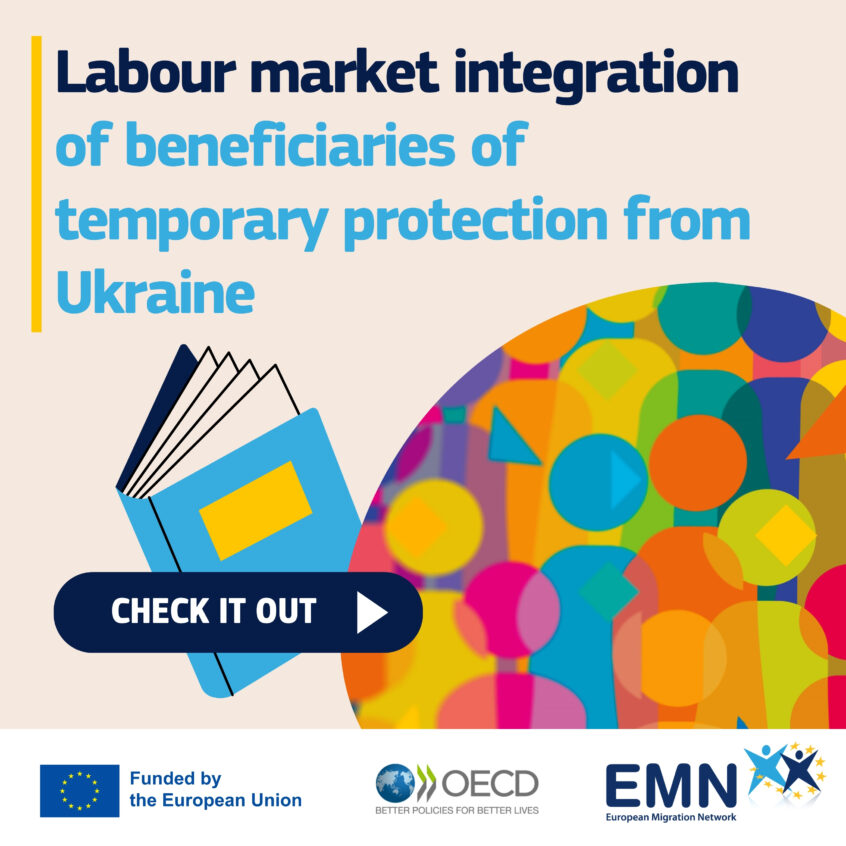Labour market integration is crucial for people to rebuild their lives following forced displacement and attain stable livelihoods. It also decreases costs for the host societies. A joint EMN-OECD inform examines the labour market integration of beneficiaries of temporary protection (BOTPs) across 24 EMN Member and Observer Countries and compares data, policies and measures to facilitate such integration.
Employment of beneficiaries of temporary protection
Based on the somewhat limited data available, the inform found the rate of employment of BOTPs varied across EMN countries. This was due to multiple factors, including differing labour market conditions, the demographic make-up of arrivals, and the type of support provided by the respective countries.
As of September 2023, the five most prominent sectors in which BOTPs were employed across EMN Countries were: accommodation and food service, administrative and support activities, manufacturing, wholesale and retail trade and construction.
Potential skills and education/experience mismatches were found in the research. Available data indicate that a large proportion of BOTPs have high educational attainment (with some EMN countries, including Ireland, reporting that more than 60% have completed tertiary education). Challenges related to the recognition of qualifications, language barriers, and uncertainty about the duration of stay.
Policies and measures for facilitating labour market integration
Host countries have varied policies, strategies and priorities in place to address labour market integration. Generally, these are focused on facilitating immediate access to the labour market, supporting language acquisition, supporting self-sufficiency and the recognition of qualifications. In Ireland, several measures have aimed to support the recognition of qualifications, including the publication of guidelines and a database for Ukrainian qualifications. The Irish Teaching Council has also developed a tailored registration process to support the registration of BOTP teachers who have qualified in Ukraine.
The majority of reporting host countries note targeted measures and practices to facilitate employment of BOTPs in roles that align with their competencies. These focus primarily on qualification recognition, language acquisition, and specific sectors, with some specifically targeting women.
A range of other common approaches are also outlined in the inform. These include improving information provision, training and upskilling opportunities and partnerships between private, non-profit, civil society and public organisations, and streamlining bureaucratic procedures. Ireland and Poland, for instance, adopted a ‘one-stop-shop’ strategy, providing BOTPs with access to mainstream employment services.
Labour market access for beneficiaries of temporary protection in Ireland
Recently, EMN Ireland launched new research on the application of the Temporary Protection Directive in Ireland which gives insights additional into access to the labour market. While arrivals from Ukraine had the same level of access to the labour market as Irish nationals, a lack of English language proficiency, compounded by insufficient English language support provision for adults were key challenges in accessing employment. Additional challenges related to difficulties in accessing childcare and transportation, posing significant barriers, especially for those residing in rural areas.
See more


